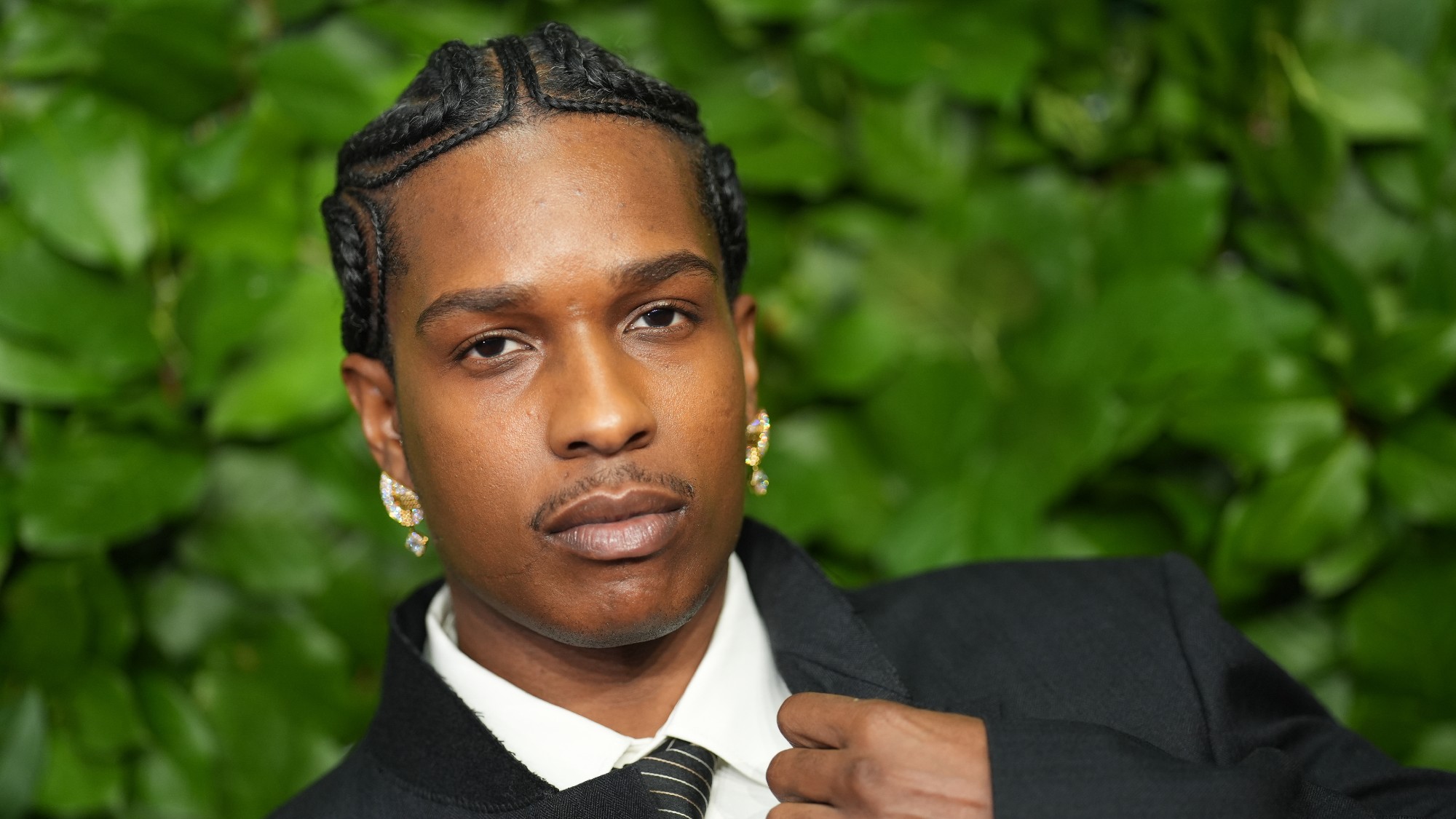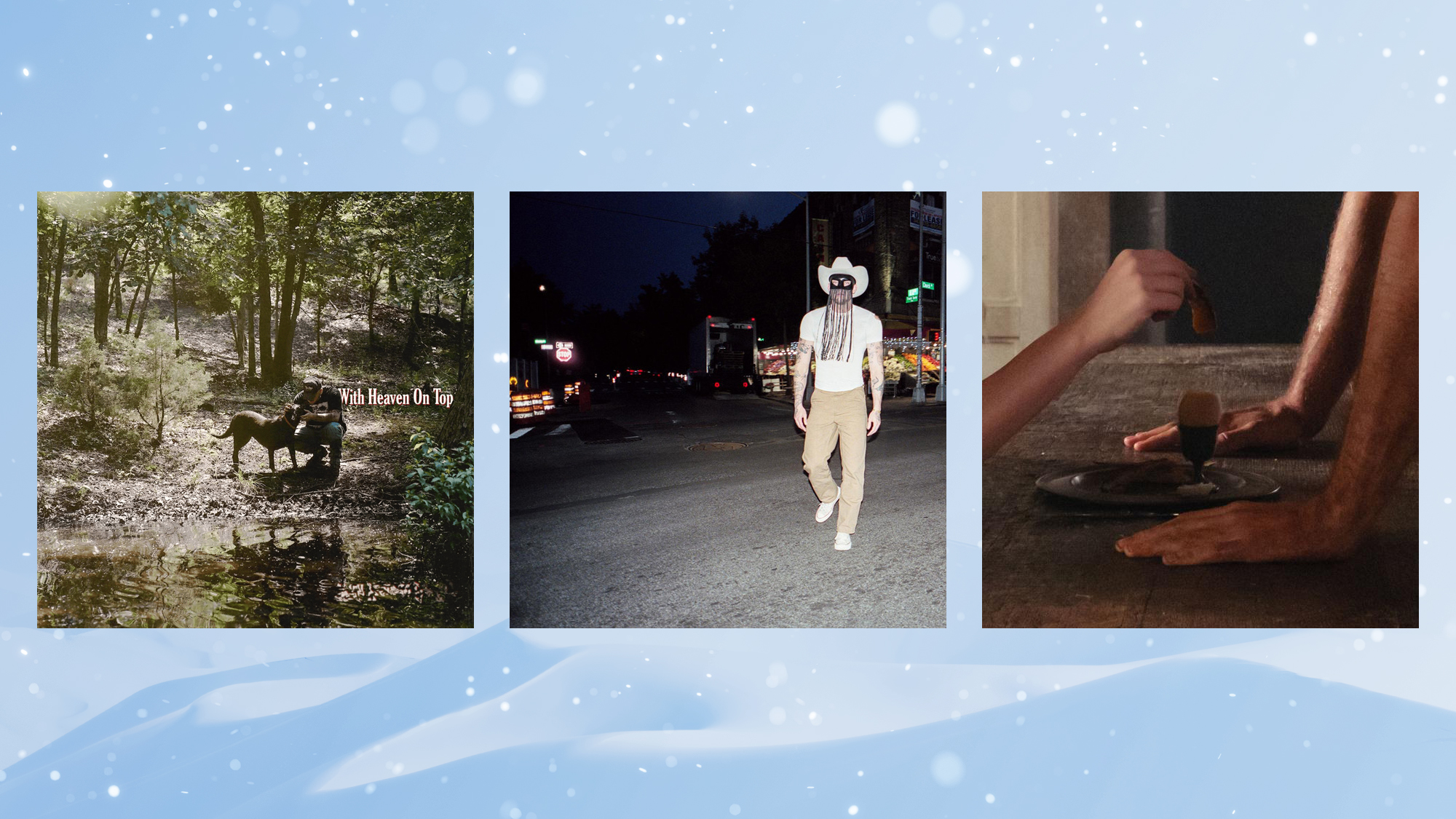How Taylor Swift changed copyright negotiations in music
The success of Taylor's Version rerecordings has put new pressure on record labels


A free daily email with the biggest news stories of the day – and the best features from TheWeek.com
You are now subscribed
Your newsletter sign-up was successful
Over the course of her career, Taylor Swift has established herself as a prominent voice in the music industry. She has been successful at building a loyal following, evident by the outpouring of love from Swifties during her "Eras" tour and the broken records following the release of Taylor's Versions for four of her six older albums. Swift shows no signs of slowing down, surprising her fans on April 19 with a secret double album release of "Tortured Poets Department" and "TTPD: The Anthology." What started as a public spat over ownership of her music — the reason for these album rerecordings — has evolved into a major shift in the way intellectual property is considered in artist contract negotiations.
How the music industry typically divides ownership
Regarding music ownership, there are multiple layers to consider for copyright negotiations. The rights to a song are split into separate copyrights for the musical work itself and the original recorded performance of the work. The former, which encompasses the lyrics and musical composition of the song, is usually controlled by the artist, composer or songwriter. The original recorded tracks, or 'master recordings,' are generally controlled by the record label distributing the project. When the song is played in public, one or both of the copyright holders get paid.
For many songs, there are multiple copyright holders or recordings of the same song. "From a licensing point of view, this can be a nightmare," attorney Gary Greenstein said at a lunchtime talk at Harvard Law School. This can complicate matters, particularly regarding who has permission to play the song publicly.
The Week
Escape your echo chamber. Get the facts behind the news, plus analysis from multiple perspectives.

Sign up for The Week's Free Newsletters
From our morning news briefing to a weekly Good News Newsletter, get the best of The Week delivered directly to your inbox.
From our morning news briefing to a weekly Good News Newsletter, get the best of The Week delivered directly to your inbox.
Tensions between artists and record labels over ownership of their master recordings have existed for years. Still, Taylor Swift's public beef with her longtime business nemesis, Scooter Braun, shed new light on artist rights. Shortly after leaving her original label, Big Machine, in 2018, the owners sold the company to Braun, including the masters of Swift's first six albums. Braun, in turn, sold Big Machine and Swift's masters along with it to another company, Shamrock Holdings, for $420 million. Swift then announced that she would rerecord all the albums in order to own them completely under her new record deal with Universal Music Group.
What Taylor Swift may have changed for good
So far, Swift has rerecorded four of her original albums between 2021 and 2023, dubbed Taylor's Versions, setting a new precedent for artists fighting over ownership of their music. It's also significant that she did not release the first Taylor's Version until she'd been out of Big Machine for three years, Greenstein said. Before then, she was not allowed to rerecord any of the material, a time frame that was typical of record deals in the past. But Taylor may have changed that rule for good.
For a long time, record labels were "somewhat rational" when prohibiting rerecordings, Greenstein said. "But now they're going to be asking, 'What's the risk of a Taylor's Version?'" As a result, record companies are trying to extend the period prohibiting rerecordings to 20 or 30 years instead of two or three. If an artist has a good lawyer, the record company won't likely get 30 years — but they still want to "make sure that the artist's vocal cords are not in good shape by the time they get around to rerecording," Greenstein said.
This begs the question of why an artist would want to sign a record contract with those kinds of restrictions. While it may not be an issue for most artists who sign to labels, it likely will be for a select few. "Very few people have the power of a Taylor Swift, but nobody knows who the next Taylor Swift will be," Greenstein said. "So, if you are a lawyer, you will represent your client zealously."
A free daily email with the biggest news stories of the day – and the best features from TheWeek.com
Swift's back and forth and subsequent success with her rerecordings has brought high-profile visibility to "one of the music industry's longest standing issues," Pitchfork said. Her open discussion of the problem encouraged other artists like Sky Ferreira and Halsey to speak about their own issues with label deals and ownership. Swift is so consequential as an artist and a brand that she can "enact change by wielding the leverage of the reliability of her success," the outlet said. When Swift makes a statement, it is "financially lucrative for the industry to listen."
"I see this as a sign that we are headed towards positive change for creators — a goal I'm never going to stop trying to help achieve, in whatever ways I can," Swift said in an open letter she wrote a few years ago.
Theara Coleman has worked as a staff writer at The Week since September 2022. She frequently writes about technology, education, literature and general news. She was previously a contributing writer and assistant editor at Honeysuckle Magazine, where she covered racial politics and cannabis industry news.
-
 6 of the world’s most accessible destinations
6 of the world’s most accessible destinationsThe Week Recommends Experience all of Berlin, Singapore and Sydney
-
 How the FCC’s ‘equal time’ rule works
How the FCC’s ‘equal time’ rule worksIn the Spotlight The law is at the heart of the Colbert-CBS conflict
-
 What is the endgame in the DHS shutdown?
What is the endgame in the DHS shutdown?Today’s Big Question Democrats want to rein in ICE’s immigration crackdown
-
 Bad Bunny’s Super Bowl: A win for unity
Bad Bunny’s Super Bowl: A win for unityFeature The global superstar's halftime show was a celebration for everyone to enjoy
-
 Microdramas are booming
Microdramas are boomingUnder the radar Scroll to watch a whole movie
-
 Music reviews: Ari Lennox, Lucinda Williams, and A$AP Rocky
Music reviews: Ari Lennox, Lucinda Williams, and A$AP RockyFeature ‘Vacancy,’ ‘World’s Gone Wrong,’ and ‘Don’t Be Dumb’
-
 Bad Bunny, Lamar, K-pop make Grammy history
Bad Bunny, Lamar, K-pop make Grammy historySpeed Read The Puerto Rican artist will perform at the Super Bowl this weekend
-
 Music reviews: Zach Bryan, Dry Cleaning, and Madison Beer
Music reviews: Zach Bryan, Dry Cleaning, and Madison BeerFeature “With Heaven on Top,” “Secret Love,” and “Locket”
-
 The best music of 2025
The best music of 2025The Week Recommends These were some of the finest releases of the past year
-
 10 upcoming albums to stream during the winter chill
10 upcoming albums to stream during the winter chillThe Week Recommends As the calendar turns to 2026, check out some new music from your favorite artists
-
 A postapocalyptic trip to Sin City, a peek inside Taylor Swift’s ‘Eras’ tour, and an explicit hockey romance in December TV
A postapocalyptic trip to Sin City, a peek inside Taylor Swift’s ‘Eras’ tour, and an explicit hockey romance in December TVthe week recommends This month’s new television releases include ‘Fallout,’ ‘Taylor Swift: The End Of An Era’ and ‘Heated Rivalry’
